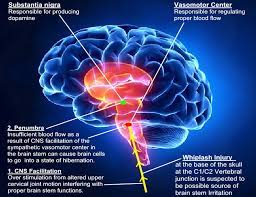Fatigue is a common symptom experienced by nearly 50% of individuals with Parkinson’s disease, and can be debilitating and persistent, often unrelieved by rest. While fatigue can be a subjective experience, it is important for clinicians to understand potential underlying causes in order to provide appropriate management. Here, we highlight five common causes of fatigue in Parkinson’s disease.

Sleep disorders: Individuals with Parkinson’s disease often experience sleep disorders, such as REM sleep behavior disorder, sleep apnea, restless legs syndrome, and insomnia. Each of these disorders can contribute to feelings of lethargy and fatigue, with disrupted sleep patterns leading to a zombie-like state during the day. Effective management of these disorders, such as with medications, can help improve energy levels.
Vitamin deficiencies: Chronic illnesses such as Parkinson’s disease can lead to deficiencies in important vitamins such as B12 and D. These vitamins play crucial roles in red blood cell formation, oxygen delivery to tissues, protection from inflammation, and energy production in the body. Correcting deficiencies through dietary changes or supplementation can lead to improvement in fatigue symptoms.
Uncontrolled blood sugar: Parkinson’s disease can affect glucose levels in the body through its impact on dopamine. Sudden or drastic changes in blood sugar levels can lead to symptoms of fatigue and listlessness.
High or low blood pressure: Fluctuations in blood pressure are common in Parkinson’s disease and can be exacerbated by medication use. Both high and low blood pressure can contribute to feelings of fatigue and affect concentration. Regular monitoring and maintenance of healthy blood pressure levels can help manage fatigue symptoms.
Gut health: Researchers have suggested that decreased absorption of nutrients from the gut may contribute to fatigue in Parkinson’s disease. Those with frequent constipation may experience nausea, bloating, stomach cramps, and general malaise. Management of gut health through dietary changes or medications can help improve fatigue symptoms.
In summary, fatigue is a common and often debilitating symptom in Parkinson’s disease. Clinicians should be aware of the potential underlying causes, such as sleep disorders, vitamin deficiencies, uncontrolled blood sugar, fluctuations in blood pressure, and gut health, in order to provide appropriate management strategies for their patients.